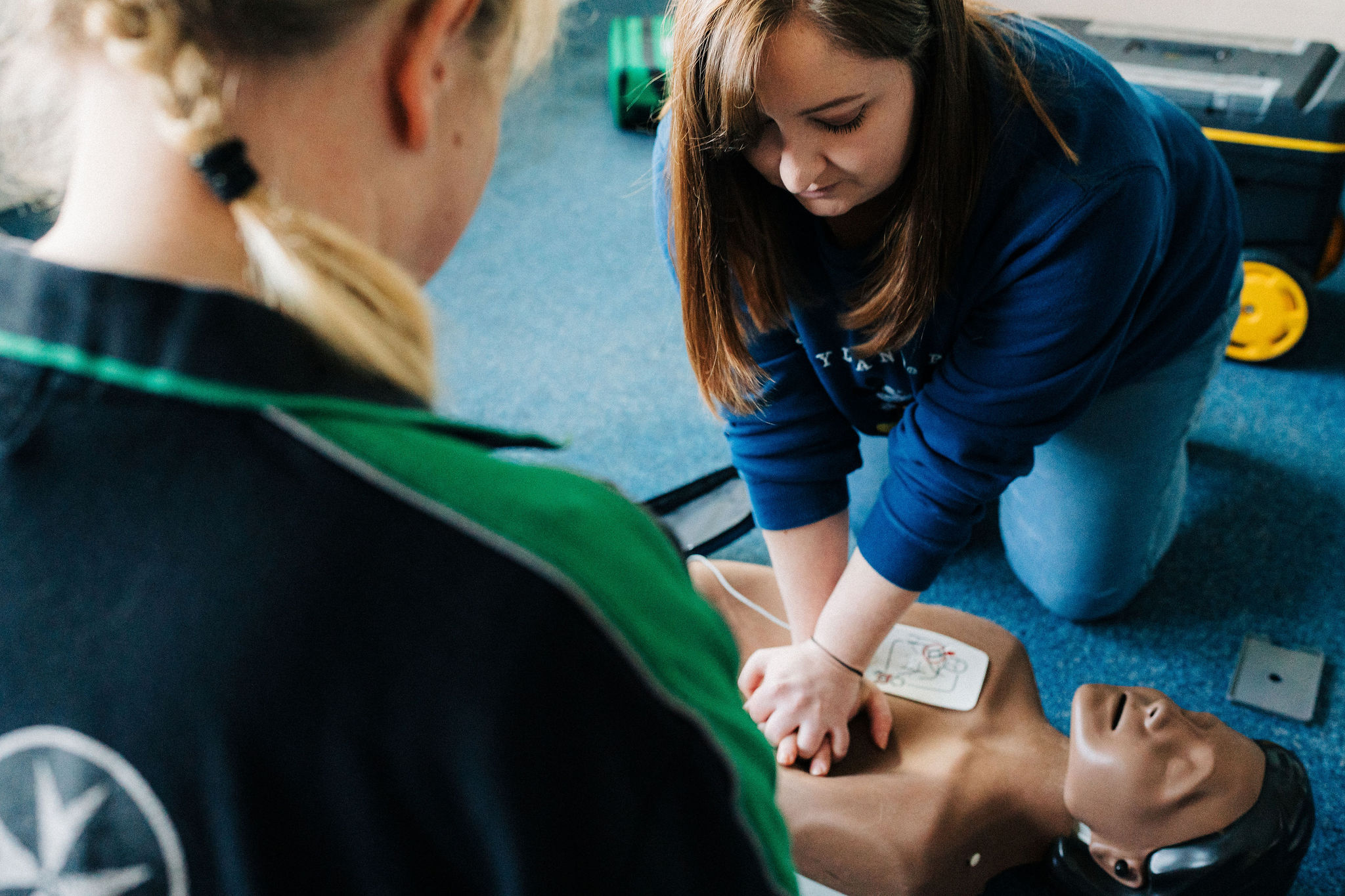First Aid Advice

At St John Ambulance Cymru, we believe that everyone should have the knowledge and confidence to provide first aid in an emergency. Whether you’re at home, work, or in a public place, knowing basic first aid can save lives. Our guidance covers essential topics to help you act quickly and effectively when it matters most.
Why First Aid Matters
Accidents and medical emergencies can happen at any time. Immediate first aid can prevent a situation from worsening, provide reassurance to those affected, and even be the difference between life and death. By learning key first aid techniques, you can make a real impact in your community.
Essential First Aid Topics
We cover a wide range of first aid topics, ensuring you have the guidance needed to respond confidently in an emergency:
-
CPR and Using a Defibrillator – Learn how to perform cardiopulmonary resuscitation (CPR) and use an automated external defibrillator (AED) to help someone in cardiac arrest.
-
Choking – Recognise the signs of choking and discover how to administer back blows and abdominal thrusts to clear an obstruction.
-
Bleeding and Wound Care – Understand how to stop bleeding, apply bandages, and manage different types of wounds.
-
Burns and Scalds – Know how to cool and treat burns effectively to minimise damage.
-
Fractures, Sprains & Dislocations – Learn how to support and stabilise broken bones and joint injuries before professional help arrives.
-
Seizures and Epilepsy – Discover the correct steps to take when someone is having a seizure to ensure their safety.
-
Recognising a Heart Attack or Stroke – Be aware of the warning signs and the urgent actions to take if someone is experiencing a heart attack or stroke.
-
Someone’s Unresponsive – Understand the key steps to take if someone is unconscious, including checking for breathing and calling for help.
-
Shock – Identify the signs of shock and learn how to provide appropriate care.
-
Sepsis – Recognise the early signs of sepsis and understand the importance of seeking urgent medical help.
-
Recovery Position – Learn how to place someone in the recovery position to maintain an open airway.
-
Head Injuries – Know how to assess and manage head injuries, including concussions and severe trauma.
-
Drowning – Understand the steps to take when assisting someone who has been submerged in water.
-
Diabetic Emergency – Learn how to recognise and respond to diabetic emergencies, including hypoglycaemia and hyperglycaemia.
-
Allergic Reactions – Identify the symptoms of an allergic reaction and know how to manage mild to severe cases.
-
Asthma Attack – Learn how to help someone experiencing an asthma attack, including the use of inhalers.
-
Fainting – Understand why fainting occurs and how to assist someone who has lost consciousness temporarily.
-
Cuts & Grazes – Discover how to clean and dress minor wounds effectively.
-
Bites & Stings – Learn how to treat insect bites, stings, and other minor injuries caused by animals.
-
Hypothermia – Recognise the symptoms of hypothermia and take the necessary steps to warm someone safely.
-
Foreign Objects – Understand how to assist someone with a foreign object in their eye, nose, ear, or skin.
-
Primary Survey – Learn the vital steps of a primary survey to assess an injured or ill person quickly.
-
Anaphylactic Shock – Recognise the life-threatening signs of anaphylaxis and learn how to administer emergency treatment.
First Aid Training
While our advice provides essential knowledge, hands-on training is the best way to build confidence and competence in first aid. You should also take a training course if you require a professional first aid qualificiation St John Ambulance Cymru offers a variety of certified first aid courses for individuals and workplaces across Wales.
Be ready to help – because every second counts.
